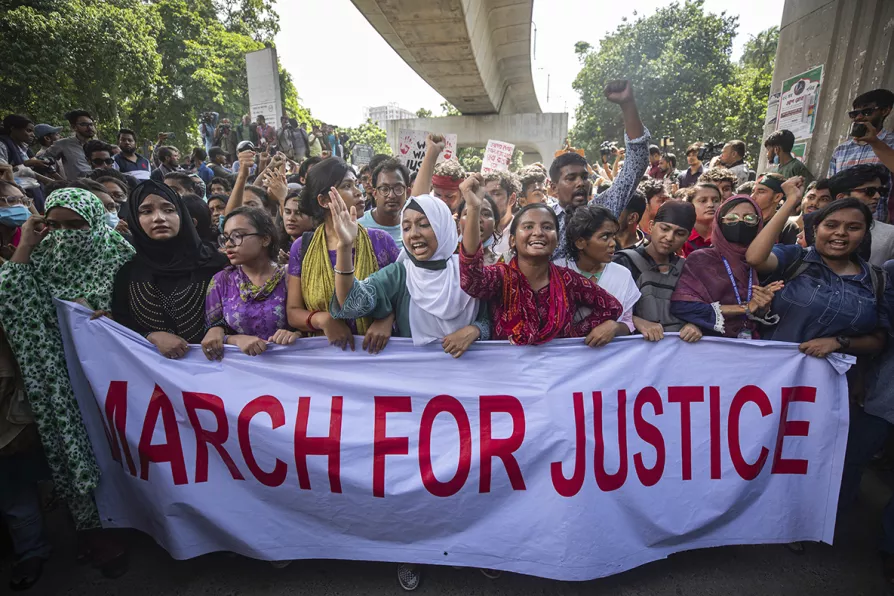The Carpathia isn’t coming to rescue this government still swimming in the mire, writes LINDA PENTZ GUNTER

 University students shout slogans during a protest to demand justice for the victims killed in the recent countrywide deadly clashes and ask for their campuses to be opened, in Dhaka, Bangladesh, July 31, 2024
University students shout slogans during a protest to demand justice for the victims killed in the recent countrywide deadly clashes and ask for their campuses to be opened, in Dhaka, Bangladesh, July 31, 2024
THE massive uprising, just over a month ago, in Bangladesh which overthrew the brutal fascist regime of former prime minister Sheikh Hasina and her party Bangladesh Awami League (BAL) has caught the world by surprise.
This is complemented by confusion about why and how a seemingly impregnable government could be swept apart in a matter of weeks. Now that the dust has settled a bit the question doing the rounds is the prospects of the interim regime of Professor Muhammad Yunus and those of the country at large.
What happened in Bangladesh is part of a global phenomenon where post-colonial states began their journey of freedom from colonial rule with great expectations and optimism and then descended into a form of of backward capitalism buttressed by one-party undemocratic rule.

Modi has rolled out the carpet for the Taliban in New Delhi — and we shouldn’t be surprised. They have more in common than you might think, argues Bhabani Shankar Nayak













